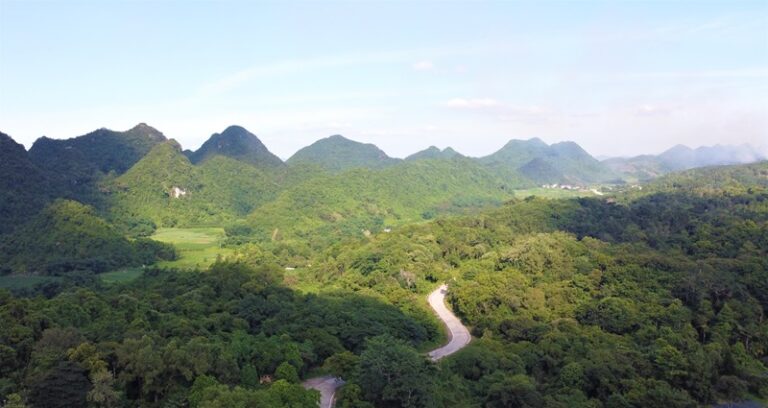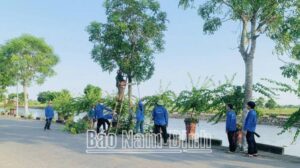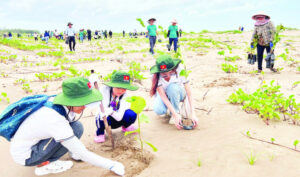Hung Kings’ Temple National Historic Site is located in Co Tich village, Hy Cuong commune, Viet Tri city, Phu Tho province. This is not only a sacred land, but also a famous tourist destination with charming landscapes and local specialties, leaving a special mark in the hearts of tourists.
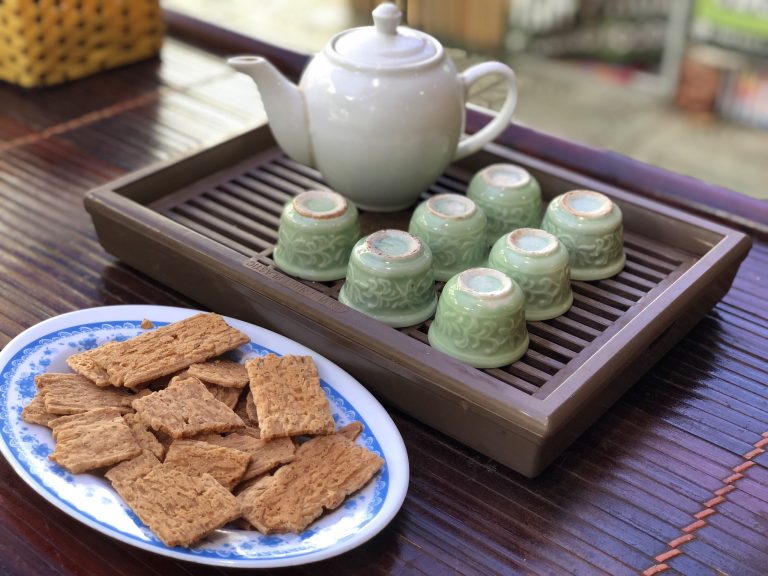
Chinese yam cakes are made from Chinese yam that often grow wildly in mountainous areas. Chinese yams are often dug, peeled off, boiled, stir-fried or made soup. Chinese yams are also a food used to fight hunger during drought, famine or a drug to help reduce the appetite for sugar powder for people with diabetes because Chinese yams have a very high starch content (almost equal to that of rice) and contain the protein mucin, which hydrolyzes starch into sugar.
Making Chinese yam products was explored and learned by some people in Hy Cuong commune from some localities with rich experience in confectionery production such as Hanoi, Bac Ninh, etc., who then applied their knowledge in production in their own homeland. From raw materials available at the locality and neighboring areas, the owners of the production facilities have made many delicious cakes with their own flavors such as: Chinese yam cake, crispy sesame Chinese yam cake, Chinese yam baked cake, etc.
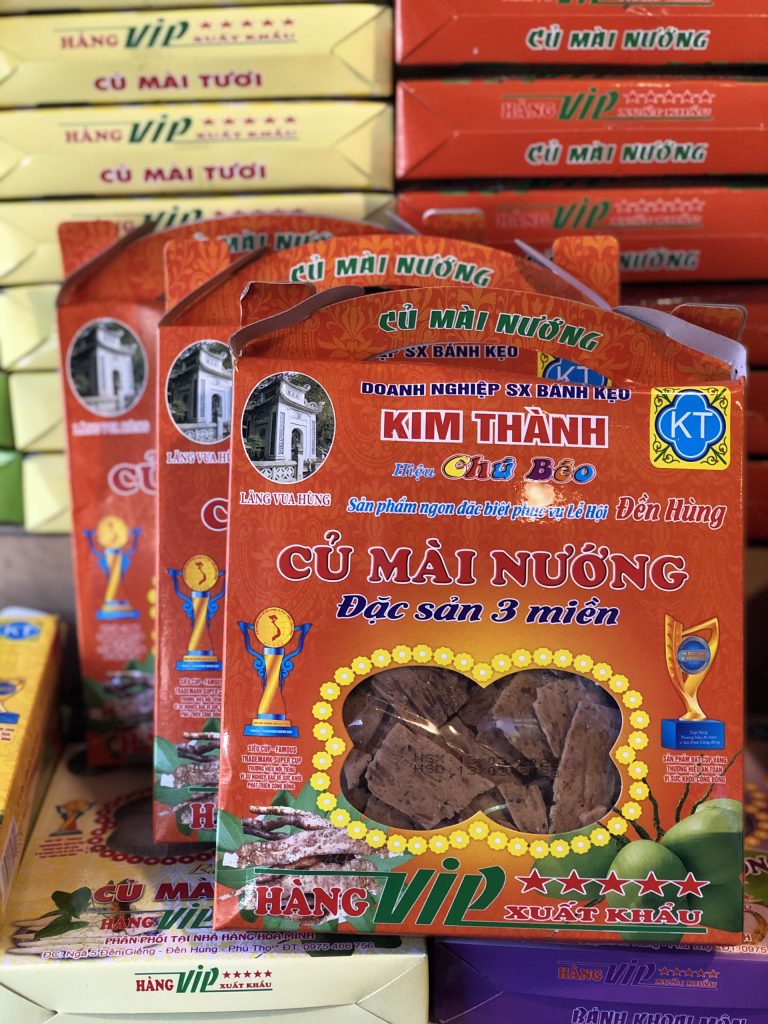
Production of a cake must go through many stages. Chinese yam cakes are made from the main ingredient of Chinese yams, by grinding Chinese yams into powder, then cooking it with sticky rice flour, malt and sugar. Experienced cooks observe the ripeness and stickiness of the cakes before taking out, lay a grated coconut cover, then let it cool, cut into pieces, and do packing. In order to build a brand and maintain the high quality of the product, selection of quality ingredients, ensuring food safety and hygiene requirements has been concerned and strictly followed by bakers and confectioners. Selection of raw materials and processing to ensure food safety and hygiene is a top priority. All materials such as: Chinese yams, rice and peanuts are carefully selected, not to be moldy and spoilt so that the product will have high quality. All employees during production are required to wear protective equipment to keep hygiene. The production facilities guarantee that their specialty cakes contain no preservatives and all comply with the food hygiene and safety procedures.
Being rich in types and diverse in forms has brought products from Chinese yams and other agricultural products of the Fatherland to the stalls in the relic site and also in some other provinces. When coming to Hung Kings’ Temple, visitors can buy the products made from typical ingredients of the locality and by the local people at the foot of Hung Mountain. Up to now, Chinese yam cakes have been favored by many tourists across the country, distributed in many provinces and cities and gradually asserted its name in the market.
Phu Tho Tourist Information Center



